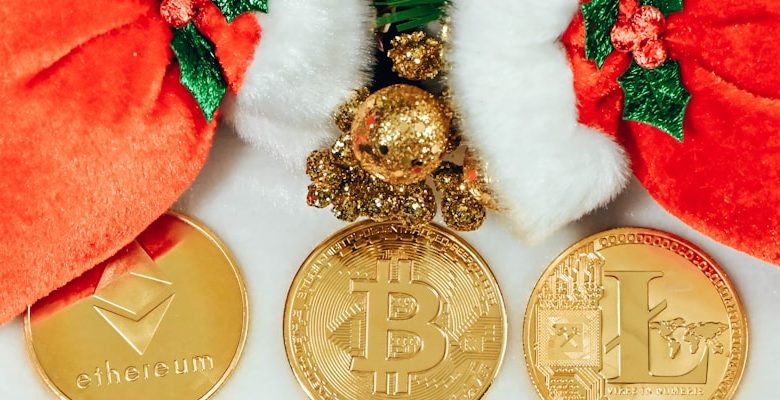How Blockchain is Powering the Internet of Things (IoT)

- Understanding the Intersection of Blockchain and IoT
- Exploring the Benefits of Blockchain Technology in IoT
- Enhancing Security and Trust in IoT with Blockchain
- IoT Industry Revolutionized by Blockchain Applications
- Decentralizing Data Management in IoT using Blockchain
- Future Implications of Blockchain Integration in IoT
Understanding the Intersection of Blockchain and IoT
The intersection of blockchain and IoT is revolutionizing the way devices communicate and transact with each other. By leveraging blockchain technology, IoT devices can securely and autonomously exchange data and execute transactions without the need for a central authority. This decentralization ensures the integrity and security of the data being shared, making it less vulnerable to cyber attacks.
Blockchain provides a tamper-proof and transparent ledger that records all transactions between IoT devices. This immutable record helps to establish trust between devices, even if they have never interacted before. Moreover, blockchain’s consensus mechanisms ensure that all parties agree on the validity of transactions, preventing fraud and unauthorized access to the data.
One of the key benefits of integrating blockchain with IoT is the ability to create a decentralized marketplace for devices to buy and sell data. This peer-to-peer network eliminates the need for intermediaries, reducing transaction costs and increasing efficiency. Additionally, blockchain enables micropayments between devices, allowing for new business models to emerge in the IoT ecosystem.
Overall, the combination of blockchain and IoT holds great promise for transforming various industries, from supply chain management to healthcare and smart cities. As more devices become connected and generate vast amounts of data, blockchain provides a secure and scalable solution for managing and monetizing this information. By understanding the intersection of blockchain and IoT, businesses can stay ahead of the curve and unlock new opportunities for innovation and growth.
Exploring the Benefits of Blockchain Technology in IoT
Blockchain technology offers numerous benefits when integrated with the Internet of Things (IoT). One key advantage is enhanced security. The decentralized and immutable nature of blockchain makes it an ideal solution for securing IoT devices and data. By using cryptographic algorithms and distributed ledger technology, blockchain can prevent unauthorized access, tampering, and data breaches in IoT systems.
Another benefit of combining blockchain and IoT is increased transparency and trust. With blockchain, all transactions and data exchanges are recorded on a tamper-proof ledger that is accessible to all parties involved. This transparency helps to build trust among stakeholders, as they can verify the authenticity and integrity of the data in real-time. This is particularly useful in supply chain management, where tracking and tracing the origin of products is crucial.
Moreover, blockchain technology can enable automated processes and smart contracts in IoT ecosystems. Smart contracts are self-executing contracts with the terms of the agreement directly written into code. By using blockchain to store and execute smart contracts, IoT devices can autonomously interact with each other based on predefined conditions, without the need for human intervention. This not only streamlines operations but also reduces the risk of errors and delays.
Additionally, blockchain can provide a more efficient and cost-effective way to handle transactions and payments in IoT networks. By eliminating the need for intermediaries and central authorities, blockchain enables peer-to-peer transactions between devices. This not only reduces transaction fees but also accelerates the settlement process. As a result, IoT devices can seamlessly exchange value and services in a secure and trustless environment.
In conclusion, the integration of blockchain technology in IoT has the potential to revolutionize the way devices communicate, transact, and operate. From enhanced security and transparency to automated processes and cost savings, blockchain offers a range of benefits that can drive the adoption and evolution of the Internet of Things. As more industries and applications embrace this technology, we can expect to see a more connected, efficient, and secure IoT ecosystem in the future.
Enhancing Security and Trust in IoT with Blockchain
The integration of blockchain technology in the Internet of Things (IoT) ecosystem is enhancing security and trust in connected devices. By leveraging the decentralized and tamper-proof nature of blockchain, IoT devices can securely communicate and transact with each other without the need for a central authority.
Blockchain provides a secure and transparent way to record transactions and data exchanges between IoT devices. Each transaction is cryptographically linked to the previous one, forming a chain of blocks that cannot be altered without consensus from the network participants. This immutable record ensures the integrity and authenticity of data transmitted between IoT devices.
With blockchain, IoT devices can establish trust among themselves through smart contracts. These self-executing contracts automatically enforce the terms and conditions of an agreement between devices, eliminating the need for intermediaries and reducing the risk of fraud or manipulation. This increased level of automation and trust in IoT networks is crucial for ensuring the security and reliability of connected devices.
Furthermore, blockchain technology enables secure identity management for IoT devices. Each device can have a unique cryptographic identity stored on the blockchain, allowing for secure authentication and authorization of device interactions. This decentralized approach to identity management reduces the risk of unauthorized access or malicious attacks on IoT networks.
Overall, the integration of blockchain in IoT is revolutionizing the way devices interact and transact in the digital world. By enhancing security and trust in connected devices, blockchain is paving the way for a more secure, efficient, and transparent IoT ecosystem.
IoT Industry Revolutionized by Blockchain Applications
The IoT industry is undergoing a significant transformation with the integration of blockchain technology. This innovative combination is revolutionizing how devices communicate and interact with each other, creating a more secure and efficient network.
By leveraging blockchain applications, IoT devices can securely exchange data and transactions without the need for intermediaries. This decentralized approach not only enhances the privacy and security of the network but also improves the overall reliability and transparency of data exchanges.
One of the key benefits of using blockchain in the IoT industry is the ability to establish trust between devices through smart contracts. These self-executing contracts automatically facilitate and enforce agreements between parties, eliminating the need for manual intervention and reducing the risk of fraud or manipulation.
Furthermore, blockchain technology enables the creation of tamper-proof records of device interactions, creating a reliable and immutable audit trail. This not only enhances the accountability and traceability of data but also streamlines the process of identifying and resolving any issues that may arise within the network.
Overall, the integration of blockchain applications in the IoT industry is driving a new era of innovation and efficiency. As more devices become interconnected and data-driven, the use of blockchain technology will continue to play a crucial role in shaping the future of IoT ecosystems.
Decentralizing Data Management in IoT using Blockchain
Decentralizing data management in the Internet of Things (IoT) is crucial for ensuring security and efficiency. Blockchain technology is revolutionizing how data is stored and managed in IoT devices. By utilizing blockchain, data is no longer stored in a centralized server but distributed across a network of nodes, making it more secure and less vulnerable to cyber attacks.
Blockchain creates a tamper-proof and transparent ledger of transactions, ensuring data integrity and authenticity in IoT devices. This decentralized approach eliminates the need for a trusted third party to oversee data management, reducing costs and improving efficiency. With blockchain, IoT devices can securely communicate and transact with each other autonomously, without the need for human intervention.
Furthermore, blockchain technology enables data immutability, meaning once data is recorded on the blockchain, it cannot be altered or deleted. This feature is especially critical in IoT applications where data accuracy is paramount. By decentralizing data management using blockchain, IoT devices can operate more securely and reliably, driving the widespread adoption of IoT technology across industries.
Future Implications of Blockchain Integration in IoT
Integrating blockchain technology into the Internet of Things (IoT) has the potential to revolutionize the way devices communicate and interact with each other. This integration can enhance security, transparency, and efficiency in IoT networks, paving the way for a more connected and automated future.
One of the key future implications of blockchain integration in IoT is the increased trust and security it offers. By utilizing blockchain’s decentralized and immutable ledger, IoT devices can securely and transparently communicate and transact with each other without the need for intermediaries. This can help mitigate security risks such as data breaches and hacking, ensuring that sensitive information remains protected.
Furthermore, blockchain integration in IoT can streamline processes and reduce costs by eliminating the need for third-party verification and validation. Smart contracts, which are self-executing contracts with the terms of the agreement directly written into code, can automate transactions between IoT devices, making them more efficient and cost-effective.
Another significant implication of blockchain integration in IoT is the potential for data integrity and authenticity. With blockchain’s ability to create an unalterable record of transactions, IoT devices can verify the authenticity of data and ensure its integrity throughout the network. This can be particularly valuable in industries such as healthcare and supply chain management, where data accuracy is critical.
In conclusion, the integration of blockchain technology in IoT has the potential to transform the way devices interact and communicate in the future. By enhancing security, transparency, and efficiency in IoT networks, blockchain can help create a more connected and automated world where devices can securely transact and exchange data without the need for intermediaries.



